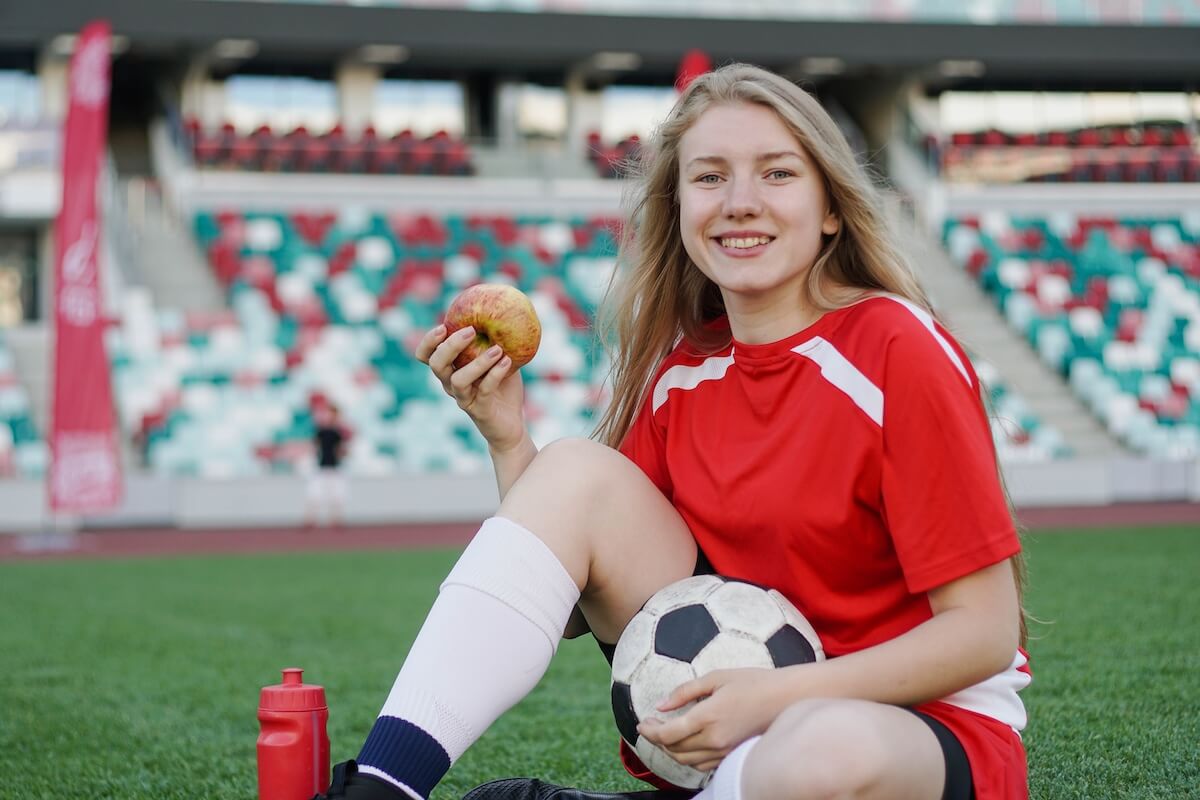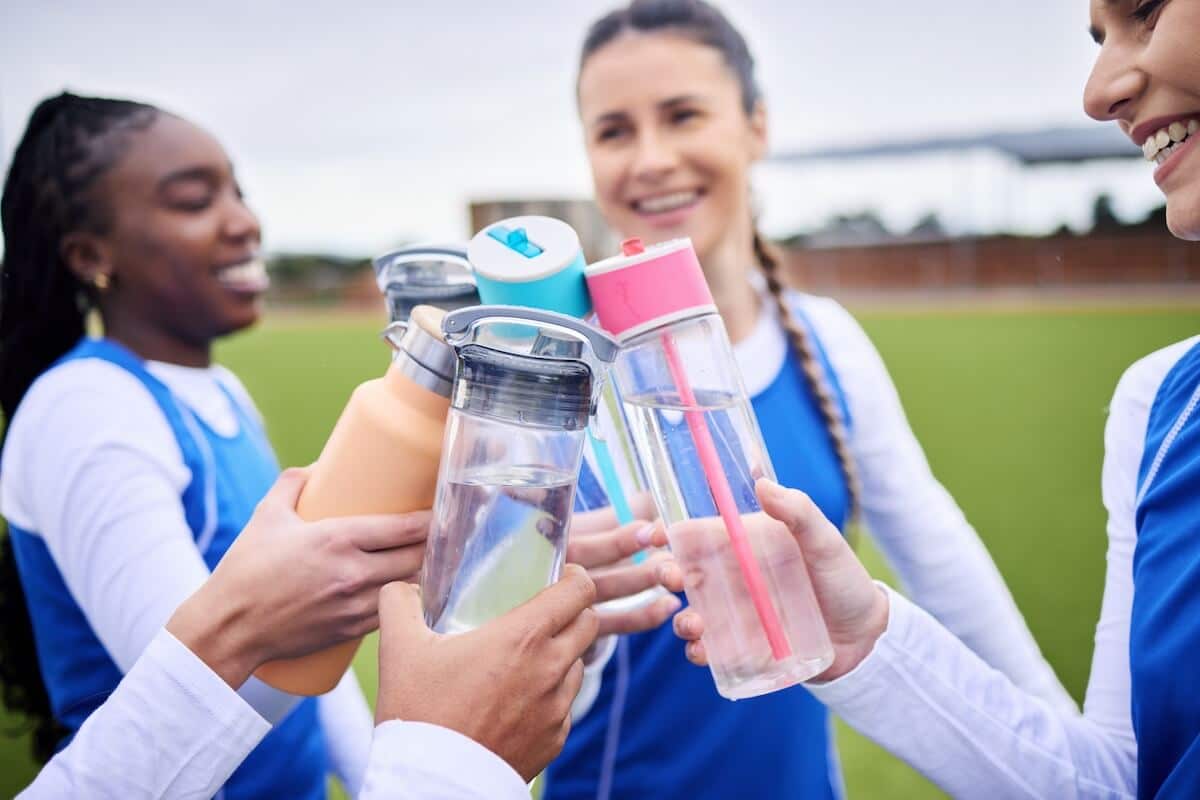Supplements for Athletes: Maximizing Performance and Recovery

By Rebecca Jaspan, MPH, RD, CDN, CDCES
If you are an athlete, you may have considered taking supplements to enhance performance. While it is certainly possible to receive all of your nutrients through food, athletes may find it helpful to supplement their diets with extra vitamins and minerals to fill in any nutritional gaps. Supplements can be a helpful tool to beat fatigue and help athletes perform at their best when pushing their bodies to high levels of activity. Athletes may use supplements to improve strength or endurance, increase exercise efficiency, achieve a performance goal, or increase tolerance to more intense training.1
While supplements can play an important role in enhancing the nutritional status of athletes, they are just that, a supplement to what you eat on a daily basis. It is imperative that the athlete consumes enough food with adequate amounts of protein, carbohydrates, and fat to promote more endurance and recovery from injuries. Athletes have increased energy needs, which gives them the opportunity to eat a wide variety of foods. This can also leave an athlete with the challenge of obtaining all the nutrients they need to maintain their health and performance. Supplements alone cannot make up for an inadequate diet, but a well-planned diet with enough calories and macronutrients can help ensure maximum benefit from supplements.2 Unsure if you should be taking a supplement? Always be sure to speak with your doctor and dietitian and review blood work to decide if a supplement is necessary.
There are some common micronutrient deficiencies that athletes need to look out for. Deficiencies in these nutrients can not only impact both physical and mental performance, but also overall health. Deficiencies commonly seen in athletes include B vitamins, calcium, vitamin D, iron, and magnesium.
B Vitamins
B vitamins are necessary for energy production from intake of carbohydrates, protein, and fats. Athletes, especially female athletes, may be at risk for deficiencies in vitamins B12, B6, and niacin.3 Vitamin B12 plays an important role in the health of nerves and cells. When deficient, the athlete may feel weak and fatigued. Food sources of vitamin B12 are primarily animal products such as meat, poultry, and dairy, so deficiencies are commonly seen in vegans and vegetarians. Other food sources of B vitamins include seafood, eggs, legumes, leafy greens, and fortified breakfast cereal and nutritional yeast.
Calcium
Calcium is important for nerve function, muscle contraction, release of hormones, and bone strength and health. Calcium is also secreted through our sweat. Since athletes put their bodies under such extreme stress in their sports, they may put themselves at risk for bone breaks or fractures. Eating an adequate amount of dairy, fortified nondairy milks, dark leafy greens, and fish with soft bones such as sardines and salmon can help ensure enough calcium intake. If athletes are not eating enough calcium, they may need a supplement.
Vitamin D
One of the most common deficiencies in athletes and non-athletes alike is vitamin D. The best source of vitamin D is through sun exposure, which many people do not get enough of during the cooler months or through diet alone. Vitamin D is important for mood, energy, and bone and muscle strength. Food sources of vitamin D include salmon, swordfish, and tuna, fortified orange juice and dairy and plant milks, sardines, and beef liver.
Iron
Iron deficiency can occur in males and is more common in females, particularly during their menstrual cycle. One review found that the rate of iron deficiency among teenage female athletes was up to 52%.4 The role of iron is to transport oxygen to the muscles, so low iron levels can cause reduced endurance, weakness, and fatigue. Iron is found in red meat, turkey, shellfish, beans, lentils, tofu, spinach, dried fruits, and nuts. Pairing a food high in iron with a food high in vitamin C, such as oranges or peppers, helps increase the absorption. Research recommends to try correcting an iron deficiency with food first before taking a supplement, as iron supplements can cause constipation and other adverse side effects.5
Magnesium
Magnesium is a vital electrolyte and electrolytes are lost through sweat. During periods of increased activity and high-level training, your body may require up to 20% more magnesium. Magnesium is involved in several processes that affect muscle function, oxygen uptake, energy production, and electrolyte imbalance. Research shows that magnesium deficiency impairs exercise performance and that increased dietary intake of magnesium or supplementation will have beneficial effects on exercise performance in individuals who are deficient.6 Food sources of magnesium include whole grains, dark leafy greens, milk, yogurt, legumes, pumpkin seeds, and nuts.
If you feel you may need a supplement to complement your training, speak with your LCWNS dietitian. We will take a deep dive into your diet and make individual food and supplement recommendations to increase your energy levels, optimize your performance, and ensure overall health for you to meet your training goals.
References
- Office of dietary supplements – dietary supplements for exercise and athletic performance.
- Larson-Meyer DE, Woolf K, Burke L. Assessment of Nutrient Status in Athletes and the Need for Supplementation.Int J Sport Nutr Exerc Metab. 2018;28(2):139-158.
- Woolf K, Hahn NL, Christensen MM, Carlson-Phillips A, Hansen CM. Nutrition Assessment of B-Vitamins in Highly Active and Sedentary Women. Nutrients. 2017;9(4):329. Published 2017 Mar 26. doi:10.3390/nu9040329
- Clénin G, Cordes M, Huber A, et al. Iron deficiency in sports – definition, influence on performance and therapy. Swiss Med Wkly. 2015;145:w14196. Published 2015 Oct 29.
- Rogerson D. Vegan diets: practical advice for athletes and exercisers. J Int Soc Sports Nutr. 2017;14:36. Published 2017 Sep 13. doi:10.1186/s12970-017-0192-9
- Nielsen FH, Lukaski HC. Update on the relationship between magnesium and exercise. Magnes Res. 2006;19(3):180-189.







